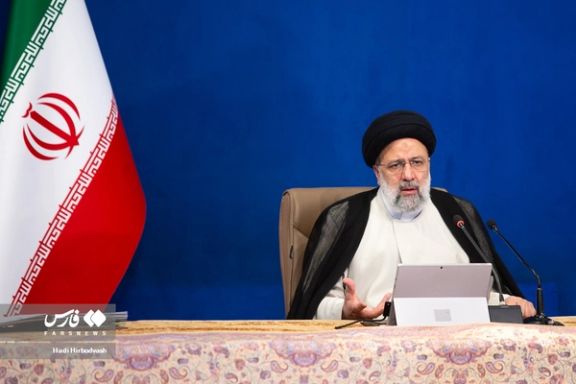Iran Political Observers Say Raisi Is Unable To Reform Economy

Political analysts in Iran say President Ebrahim Raisi has not carried out any economic reforms and has simply surrendered to vested interests of regime insiders.

Political analysts in Iran say President Ebrahim Raisi has not carried out any economic reforms and has simply surrendered to vested interests of regime insiders.
Alimohammad Namazi, a political analyst said in an interview with the conservative news website Nameh News that people's purchasing power has shrunk because of no change in the country's economic structure.
Iran has an economy dominated by the state, the Revolutionary Guard and religious entities.
Namazi said that the Raisi administration is facing numerous challenges including a major economic crisis, protests by labor groups across the country and a long-standing nuclear problem with the West that has remained unresolved.
The analyst stopped short of attributing the economic crisis to the nuclear issue and Iran's anti-West foreign policy, however, he stressed that Raisi's government is under pressure by the economic and foreign policy impasses more than its predecessors ever were.
He said Raisi was expected to meet the promises he made to those who voted for him, but none of his pledges have come true. The people understand the existing difficulties but expect to see Raisi delivering at least on some of his promises.
"Raisi had promised a non-partisan government which would not favor only one faction. But everyone in the government comes from the same 'principlist' camp," Namazi complained.
Prices continue to rise and there is no change in the country's problematic economic structure. Namazi did not mention the negative impact of insiders controlling large chunks of the economy, as most Iranian pundits exercise self-censorship when speaking to the media.
Namazi also blamed Raisi for the delay last year in resuming nuclear negotiations with the West, although he mentioned recent obstructions by Russia which complicated an agreement at the last minute. Meanwhile, he pointed out that even if there is a nuclear agreement, Iran may still not be able to conduct foreign trade as it has not yet accepted financial reforms to ban financing of terrorism.
In another development, a Reformist pundit and a critic of the administration, Ali Soufi, charged that Raisi has surrendered to the pressures of those who wanted a share of political power in Iran. He also accused the administration of being overwhelmed by its daily business rather than planning to deal with problems.
He added that Raisi has never presented a plan to the nation, let alone changing the make-up of his cabinet to carry it out.
Soufi said that he and other Iranian analysts agree that Raisi's honeymoon has ended as he has started his 8th month in office. "It is now time for him to be accountable," Soufi added. He further said, "So far, he has simply occupied the presidential seat and has not done anything in particular."
The reformist activist said that talks about impeaching some of Raisi's cabinet ministers have been continuing during the first days of the new Iranian year which started on March 21.
During the past months many Iranian lawmakers and political commentators have pointed out the weak performance of some of Raisi's economic team members, including his Labor Minister Hojjat Abdolmalei, Economy Minister Ehsan Khandouzi and Industry Minister Reza Fatemi Amin and called for their impeachment by the parliament.
Soufi said that Raisi, contrary to promises, surrendered to demands of different factions and gave a big share of posts to Majles Speaker Mohammad Bagher Ghalibaf and the Paydari Party.
Meanwhile Soufi warned that Raisi's claims about his success in boosting revenues and economic growth are not true because even if there is more money, it is simply the outcome of a sudden rise in oil prices which cannot last long.